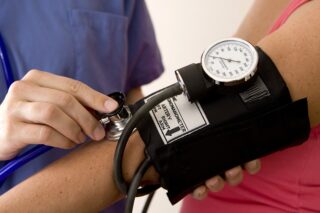
Losing weight is consistently the #1 New Year’s resolution in the U.S., and while it’s not always easy to take off those extra pounds, it’s an achievement your heart will thank you for year after year. Most of us know that losing weight means we decrease some of the burden on our hearts, and in turn, decrease the risk for cardiovascular disease; but studies have also shown that losing weight can protect some people from developing an irregular heartbeat and reduce the symptoms of atrial fibrillation.
What the Studies Found
The first study looked at 11,000 older women and found those who were very active – walking briskly for 30 minutes six times per week – had a 10 percent lower risk of developing atrial fibrillation compared to those who were sedentary; but the really good news is that even women who were moderately active – including those who walked briskly for 30 minutes just three times per week – had at least a 6 percent decreased risk of developing the condition. That means adding just a little walking to your regular routine a few times a week could do a lot toward preventing atrial fibrillation.
The second study looked at patients who had already been diagnosed with AF and were highly symptomatic. In that study, patients who followed a weight-loss diet and managed other risk factors had far fewer symptoms and AF events compared to those who managed their risk factors but did not follow a weight-loss diet.
A Clear Message to Those in AFib
In both cases, the message is clear: Exercising and losing weight can significantly help you avoid AF or decrease symptoms and events in those who already have the condition. And you don’t have to aim for the stars to get some beneficial effects; even a moderate weight loss of five to 10 percent of your weight can result in a decrease in risk factors for heart disease, according to the National Institutes for Health (NIH).
For the greatest success in both exercising and dieting, the key is to begin slowly and proceed moderately, increasing your exercise and adding in healthy food choices bit by bit so your body has time to adapt, rather than trying to jump in head first. Instead, focus on healthy behaviors like cutting back bit by bit on “junk” food, adding a salad and a piece of fresh fruit each day, and taking a walk maybe once or twice a week for 15 or 20 minutes to start, Measure your progress, celebrate your successes, and ramp it up a bit for another week or so to see how well you adjust.
No matter what, the most important thing is to get started. And if you need help managing your atrial fibrillation, schedule an appointment with Dr. Dilip Mathew to discuss options that can have you feeling better before you know it.



